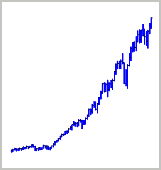 Menu
Menu
 Menu
Menu

LFM&P provides investment management services as a “fee-only" registered investment advisor.
For many people, investment in stocks and bonds mutual funds and ETFs is an important strategy to augment income, build wealth, and reach their life goals. For many of those, learning to invest can be a life-long process with many challenges and setbacks encountered along the way. One of those challenges is simply learning how to overcome natural human emotions and ways of thinking that are counterproductive. Another set of lessons is learning how to appreciate and manage risk.
We recognize that the markets’ results cannot be predicted with any more accuracy than any other outcomes that depend on human emotions and decisions. That does not mean though that there is no point in selecting strong investments or managing risk. We have developed and follow non-emotional, rules-based strategies which seek to do both - recognize and manage strength and impending risk.
We start with a client’s investment goals plus their capacity and willingness to be exposed to risk. LFM&P’s MarketAwareSM approach seeks to recognize market conditions and adjust portfolios to increase market exposure during low-risk times and reduce exposure during high risk periods.
The biggest cause of investment error, emotion, is reduced by identifying purchase, sale, and risk level rules. During quiet times we study how the markets have reacted in the past under multiple circumstances. During active, volatile times when decisions are necessary, the pre-defined rules can be implemented quickly and unemotionally.
Each client’s portfolio is different. We do not use generic “model” portfolios built for an average client, because we do not have any average clients.
The well-being of our clients is too important to us to hand off to a disconnected third party. We maintain the management function ourselves. Our clients can always talk directly to their strategist, advisor and portfolio manager.
People often own a large number of mutual funds, but achieve very little diversification if they all rise and fall together. We are careful to diversify, yet also target areas of current strength.
Our portfolios are “reallocated” rather than “rebalanced”. Rebalancing is periodically returning a portfolio to its initial allocation. Reallocating is periodically reviewing economic and market trends and adjusting to add strength and compensate for current market risk.
LFM&P's Investment Services are provided in two ways:
If we are your Investment Manager, we review your portfolio, search for opportunities and evaluate risk continuously, applying our rules-based MarketAwareSM strategy when conditions develop. To accommodate this relationship, you give us the authority to instruct a broker to buy and sell on your behalf without prior individual approval. This is called “discretionary authority”. If you do not have a broker who will accept discretion, we can suggest one.
If we provide Investment Advice, you will receive our recommendation on how to best reallocate your portfolio periodically, generally every three to six months. The choice of following the recommendation or not is yours. You decide. If your broker allows advisors to complete transactions for you, we can do that after receiving your approval. If you have an account like a 401(k) or 403(b), which does not allow advisors to represent you, you would have to instruct the plan of the changes you wish to make.
Sometimes those lessons that teach how to deal with the markets can be expensive. The 2018 survey released by Dalbar1, detailing mutual fund investor's returns, shows that over the last 10 years the average equity investors' average annual return was 4.88%, while the S&P 500 index gained 8.5%. The average bond investor's return was .48% over the same period, while the Barclays Aggregate Bond Index earned 3.31%. This data suggests that a person counting on receiving a historical index return for their financial plan, and who is following an "average" strategy is likely to be disappointed.
There are multiple factors that cause this difference - commissions, mutual fund management costs, cash balances, untimely withdrawals... Some of these drags can be reduced by paying attention to the details. Others, like investor's emotions and unhelpful cognitive processes, take learning over time. LFM&P actively addresses these issues by using exchange-traded funds, managing risk, and using an emotion-minimizing rules-based approach. You can determine if an advisor's strategy is designed to minimize these return-reducing issues. It should be a factor to weigh when considering their approach, and whether their fee represents a value for you.
_________________
1Dalbar "2018 QAIB Report" 2018